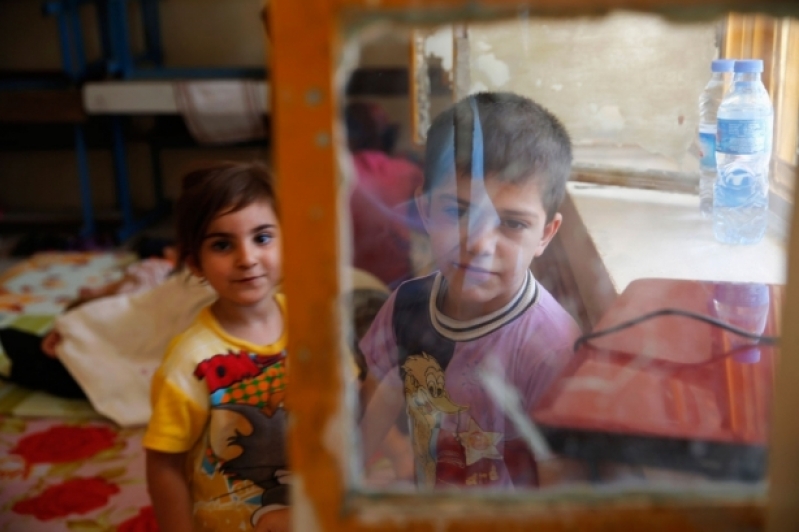
An Iraqi official in Baghdad claimed in a recent TV interview that 70 percent of Christian homes were seized during the American-led Iraq war of 2003 that toppled the regime of Saddam Hussein.
According to Robert Ewan of Independent Catholic News, two-thirds of Iraq's Christians fled the country in the chaos sparked by the invasion of Iraq, which was led by the United States. Many did not sell their properties as they fled, hoping that they would return to their homeland one day.
"Almost 70 per cent of Baghdad's Christian homes have been illegally seized," Mohammed al-Rubai of Baghdad's municipal council said in a TV interview. "These houses belonged to Christians who fled from Baghdad, seeking refuge from violent attacks targeting them and their homes."
Rubai added that powerful individuals and criminal enterprises seized control of the properties left behind by the fleeing Christians, noting that occupants were expelled in some cases.
"The title deed documents have been falsified and the new title deeds have been lodged with the real estate registry," Rubai said. "Many properties had been given illegally to other Iraqi citizens. Thus, it is possible that both parties [the original and new owners] can possess legally registered title deeds to the same property."
According to Rubai, many Christian-owned homes were affected mostly "in the al-Wahda neighborhood of Baghdad." Nongovernmental organization Baghdad Beituna (which translates to Baghdad Our Home) told Ewan that there were more than 7,000 violations against properties belonging to Iraqi Christians in Baghdad since 2003.
"Most of the Christians who left Iraq for Europe had their homes stolen," director Saad Jassim of Baghdad Beituna said. "Since then, their ownership was transferred, and the homes are now occupied by militia commanders and politicians in or close to power."
In a report published by staff from Al-Araby al-Jadeed back in February, the Supreme Judicial Council, Iraq's top judicial authority, launched an investigation into the matter. In a statement, it accused members of the government connected to former Iraqi Prime Minister Nouri al-Maliki of illegally obtaining property in Baghdad and southern Iraq; these properties included churches and monasteries.
"Offenders took advantage of a state of chaos when the US civil administration under Paul Bremer abolished decrees on land ownership issued under Saddam Hussein," al-Araby wrote. "Powerful individuals and criminal networks were able to gain control of properties, including churches and monasteries built in the 1970s and 1980s, claiming the land originally belonged to them but had been confiscated by Saddam."
According to al-Araby, the council issued a statement vowing to prosecute those who illegally seized the properties of Iraqi Christians.
"All properties that were confiscated, seized, or had their ownership transferred or appropriated on ethnic, religious, or sectarian grounds, or those seized without remuneration, will be investigated," the council wrote. "The offenders will be held accountable and the victims will be given justice."
Al-Araby noted that many Iraqi Christians fled to Europe. The council encouraged them to file lawsuits to reclaim their property if they are unable to travel back to Iraq.
"In the event properties are proven to be owned by people outside Iraq, the court will implement measures and issue arrest warrants against current occupants in accordance to Article 438 of the Penal Code, and their statements will be taken," the council wrote.
Hassan Menhem, a former legal adviser to the Baghdad Centre for Democratic Studies, told al-Araby that "the issue is a humanitarian and ethical one above all else."
"If the judiciary deals with this as a criminal matter away from politics, dozens of leaders will be thrown in jail," Menhem wrote.






